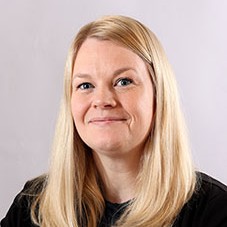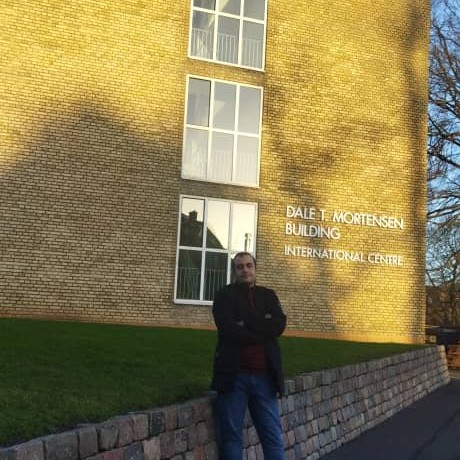About This Project
Our project unveils an innovative heat-free food processing method designed for optimal nutrient preservation. In initial experiments, we successfully achieved a remarkable significant reduction in the microbial load of wastewater from dairy processing plant while ensuring high energy efficiency. This eco-friendly approach have potential to make a revolutionary step in food processing, contributing to a global shift towards sustainable and nutrient-rich food production.
Ask the Scientists
Join The DiscussionWhat is the context of this research?
Traditional pasteurization has drawbacks like nutrient loss and altered taste. There has been a growing interest in alternative non-thermal processes to maintain microbial safety and bioactive compounds. The increasing need for research on new non-thermal processing methods is also driven by the emergence of bacterial mutations and the rise of heat, drug, and disinfectant-resistant species in the food processing industry. The study aims to revolutionize food processing by introducing energy-efficient, non-thermal techniques, considering the drawbacks of traditional methods and the growing interest in innovative, sustainable alternatives using new method to induce cavitation in the liquids.
What is the significance of this project?
This study tested the hypothesis that pulsating acoustic waves at the resonant frequencies of water-vessel vibration can induce cavitation in a liquid within a vessel system and generate useful effects for food processing, such as microbial load reduction. The invented system achieved a remarkable energy efficiency of 90.74%, significantly higher than ultrasonic 35.11% and hydrodynamic 22.05% cavitation. Microbial load test of the system shows microbial load reduction range from 40 to 90%.
What are the goals of the project?
The project aims to conduct experiments to evaluate the safety and the sensory and functional impacts of the new non-thermal processing method on various foods including milk, juice etc. Additionally, we plan to expand research to thoroughly test the developed technology and secure a patent for this innovative approach. Building on the success of two prototypes, additional time and budget are crucial for comprehensive testing and intellectual property protection. While the significant reduction in microbial load is promising, safety comparison with standard pasteurization processes will be a key focus in our future investigations. The extension of shelf life and the level of protection against microbes will be thoroughly assessed.
Budget
The project's success hinges on the development and testing of two prototypes, marking a significant milestone. To advance this innovative food processing initiative, a substantial portion of the budget is allocated to prototyping and testing. Specialized equipment, whether through purchase or rental, is indispensable for implementing our groundbreaking non-thermal pasteurization techniques and ensuring precise experimentation. The Prototyping and Testing category encompasses iterative development, refining methods for heightened efficiency, and contributes to my living expenses during the one-year period in Aarhus city. Collaboration and networking expenses are allocated to engage with experts, fostering valuable insights and facilitating collaborative research efforts. These budget items are pivotal in steering our project toward success, ensuring the meticulous execution of our pioneering research in the realm of food processing.
Endorsed by
 Project Timeline
Project Timeline
As of now, two prototypes have been built and tested. The primary focus moving forward will be to rigorously test the proven technology with a diverse range of food materials. Subsequently, the emphasis will be on publishing papers to disseminate the findings and introduce the technology to the wider scientific community.
Apr 30, 2023
Improve the prototype and conduct test with juice
Jun 20, 2023
Write paper describe the effect of the new treatment on raw milk microbial load
Jul 10, 2023
Write paper describe the effect of treatment on wastewater microbial load
Nov 20, 2023
Write paper describe the effect of second prototype on different photogenic bacteria
Dec 20, 2023
Test of the prototype with hydrophone to measure cavitation activity
Meet the Team
Ehsan Seyfali
Ehsan Seyfali, pursuing a Ph.D. in Mechanical and Bio systems Engineering focuses on revolutionizing food processing. With a Master's in Engineering, he innovatively designed a reaction turbine for solar power generation, achieving top scores. Ehsan's rich background includes work as a Maintenance Supervisor. He holds 2 registered US and WIPO patents in solar collectors and atmospheric water generation. His R&D ventures produced prototypes, like a liquid desiccant-based atmospheric water generator and solar collector apparatus. He contributed to 10 patents in renewable energy, including a 5 KW parabolic trough solar collector. Ehsan's extensive expertise spans solar energy, reaction turbines, and environmental technologies. He received several accolades, including Best Paper at the Iranian Engineering National Day Conference, WIIPA Gold medal for "Atmospheric water generation" patent, 2021. Ehsan's commitment to innovation is evident in his multitude of patents, research papers, and awards, establishing him as a prominent figure in sustainable technology development.
Lab Notes
Nothing posted yet.
Additional Information
Project Backers
- 1Backers
- 1%Funded
- $15Total Donations
- $15.00Average Donation


